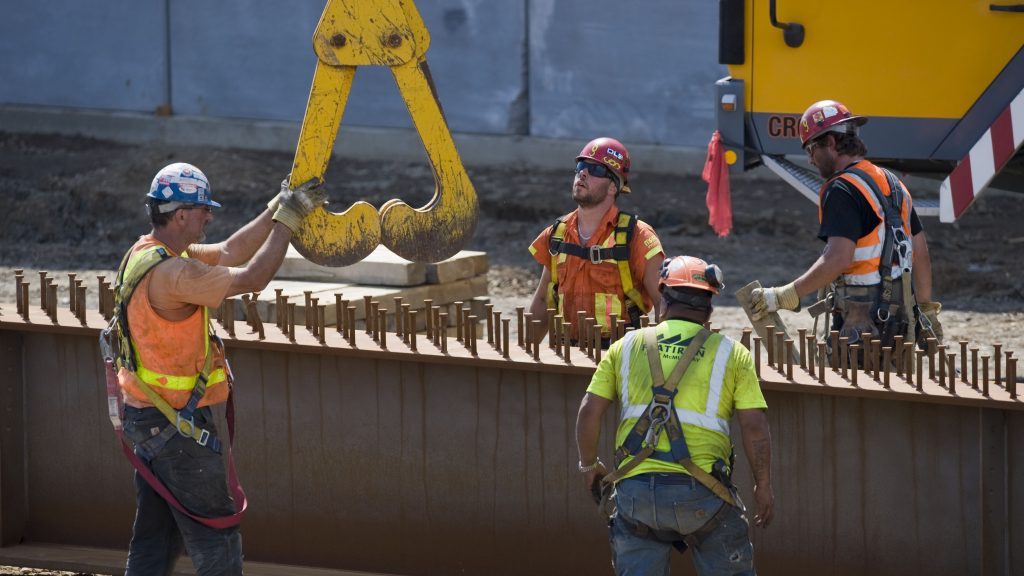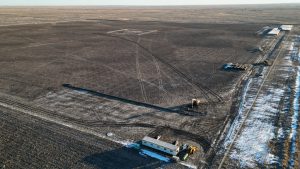Plans by Alberta Premier Rachel Notley to make community benefits agreements (CBAs) part of new infrastructure builds is garnering different reactions from stakeholders in the province’s construction industry.
The move has riled the Progressive Contractors Association of Canada (PCA), whose member companies employ more than 25,000 workers, but it’s being praised by the Building Trades of Alberta (BTA), which promotes the interests of 16 trade unions and 75,000 workers in the province.
“Given the fragile state of our economy, the last thing Albertans need are insider political games that drive up costs,” PCA president Paul de Jong said in a statement issued shortly after the announcement.
“We think it’s only fair that the Notley government come clean about who stands to benefit from its community benefits agreements,” he stated. “This government should be ensuring taxpayers get good value for their infrastructure investments, first and foremost, not playing union favourites.”
Notley announced at the BTA’s annual conference Sept. 19 that, in the weeks ahead, her government will introduce its first CBA in Alberta and use it as a test case to enact them across the province.
“For years the Building Trades have said public dollars in Alberta, when spent on building public infrastructure, should be spent in a way that maximizes the benefit to Alberta workers and local communities,” Notley said in her remarks. “You have said to me many times that It shouldn’t be about the cheapest bid, it should be about the best bid, the best bid for workers and the best bid for Alberta.”
She noted the economy in Alberta is unique and CBAs must be done in a way that’s right for the province.
The first CBA will be a smaller, focussed project that can be done quickly, and will be a test case to learn from so the province can get it right, said Notley.
“And,” she noted, “every step of the way we’re going to be listening to you, your members, and the working people of Alberta.”
Notley said if Alberta is going to spend billions of dollars on public infrastructure, it’s going to make sure it comes with local jobs, training and apprenticeship opportunities, and benefits for working people.
BTA executive director Terry Parker welcomed the announcement, saying it’s a good move by the government because it will generate social benefits by creating engagement with communities, underrepresented groups and Indigenous people and will also result in apprenticeship opportunities.
“On a lot of projects, especially smaller infrastructure projects, what we see is that the apprenticeship rules are not followed,” he said. “The government is putting effort into apprenticeship, yet apprentices aren’t coming onto the jobsites and the one thing that we always push for is that it’s not just a job in the construction industry, but a career in the construction industry.”
Parker said CBAs will help ensure more apprentices are used on jobsites, something the BTA has been pushing for.
“These community benefits agreements can help to strengthen that,” he said, noting the CBAs in Alberta will be tailor-made for the province and different from the model that’s used in B.C.
“It’s more of an Alberta-based one where it deals with the social issues and it’s open to all contractors, not union or non-union, it’s open to everyone. We’re looking at the benefit for all of Alberta.”
De Jong said CBAs can be useful public policy instruments when they’re done transparently and in good faith, but they’re being introduced in Alberta to appease the Building Trades. The PCA maintains the language used by Notley is similar to that used by B.C. Premier John Horgan when CBAs were introduced in that province.
The PCA statement states although 85 per cent of B.C.’s construction workforce has chosen not to be affiliated with the Building Trades unions, the measures taken by Horgan now require all construction workers to join and pay dues to the building trades in order to work on public projects.
“Social benefits are not the issue here – workplace coercion is,” de Jong said in his statement.
He said PCA members have been pioneers in working with under-employed groups, including First Nations, women and young people and will work with the Notley government to achieve those aims.
Parker said although no details have been released, he believes the Alberta model will be different than the one used in B.C.
“I don’t think it’s even an issue,” he said. “I think that the PCA is looking at B.C. and taking B.C.’s model and planting it here in Alberta. I think before the PCA actually starts commenting on it they should actually look at what the Alberta government is proposing first and foremost.”
Contrary to what the PCA asserts, CBAs will not drive up costs on infrastructure projects, Parker stated.
“It won’t drive up costs any more than what they should be,” he said. “When you’re looking at training and when you’re looking at bringing women into the trades, these are things that should be done in the industry. If the costs are lower because they’re not doing that – they’re not doing the right thing.”











Recent Comments
comments for this post are closed